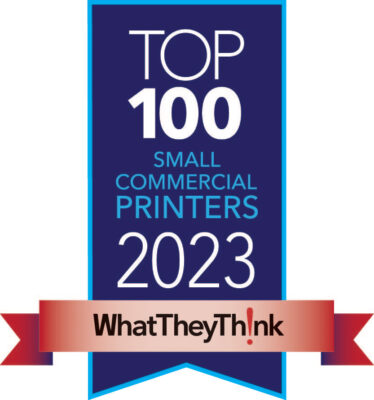Language is one of the most powerful tools that we can use as marketers. It probably sounds pretty cliche by now, but content is king, and words sell.
Marketing materials come in so many different forms these days; everything from online ads and social media posts, to direct mail and billboards. Now more than ever, specific words matter – they trigger emotions which compel your customers to act. On your next quest to write the best marketing message for your business, consider using some of these words to motivate your potential customers – and beware of a few that might turn them away.
Words to Use
You
At first glance, this word may not seem like a big deal – but don’t underestimate it’s persuasiveness. An excellent example comes from the book Neuromarketing – Understanding the “Buy Buttons” in Your Customer’s Brain. Author Patrick Renvoise shares an experience he had with a homeless man on his way to dinner one evening. He encountered the man holding a sign that said “Homeless. PLEASE HELP.” He was compelled to give the man a dollar, but wanted to take it a step further and help him increase his effectiveness of “selling.” As he noted, there are thousands of people in large cities asking for “help.” He convinced the man to change his message to, “What if YOU were hungry?” He passed by a few hours later after having dinner and the homeless man offered Renvoise money because he had done so well with his new message. Using the word “you” in your marketing message not only adds a touch of personalization, but allows you to speak directly to your potential customer, making it more about them.
Now
Telling your customers that they are getting something now gives them instant gratification. We all hate waiting. If they can download a how-to guide now, find the answer now or even speak with a sales representative to get a quote now, you better believe people are going to act. Why do you love instant chats? Because they give you an answer now – instant gratification. On the other hand, do not use this word if you can’t fulfill your promise.
Results
Everyone wants results. By including the word in your headlines or subheads, you can really gain the attention of consumers. No one wants to waste their time or energy on something that won’t produce. Results equal success, and producing results for your customers means your products must be worth the extra attention.
Discover
This is a powerful trigger word because it makes people feel like they’re about to learn something new that no one else knows. Did you know it’s actually hardwired in our brains to seek out novelty? Belle Beth Cooper, author of “Novelty and the Brain: Why New Things Make Us Feel So Good,” discussed how researchers Nico Bunzeck and Emrah Düzel used an “oddball” experiment to study how novel images stimulate the human brain. The subjects were shown a series of images of the same face or outdoor scene intermixed with a series of different (oddball) ones. They found that the brand new images they’d never seen before activated the substantia nigra/ventral segmental (SN/VTA) area of the brain – this is essentially the major “novelty center” of the brain that responds to new stimuli. However, images that only slightly deviated from more familiar ones didn’t have the same effect, and neither did images with strongly negative emotional context such as car crashes or angry faces.
If you feel you’re about to discover something new, doesn’t it make it worth your time to read that article, make that call, or visit that website?
Effective
Using effective in your marketing message gives your customers a sense of trust. If you’re offering a product or service that’s effective, you’re able to produce the intended or expected result, without wasting time or expenses. Who doesn’t want that?
Time saving
Everyone is busy these days – everyone. If you’re able to save your customers time with your products and services, this is a big deal. It could even trump saving money in the eyes of some consumers. Most of us have shopped the produce section at our local grocery store and noticed the containers of already washed and chopped vegetables. We’ve also noticed how they can be more expensive with less contents than their counterparts. Do we save a few bucks and do the work ourselves, or spend more money to save time – time that we could be spending with family rather than cooking. What do we value more?
In her article, “Why Time is More Important Than Money,” Kristen Fischer references the journal Social Psychological and Personality Science, which conducted a study that asked more than 4,600 participants questions like whether or not they would prefer to pay more rent for an apartment with a short commute or pay less rent for an apartment with a long commute. Over half of the respondents said they would pay more rent for an apartment with a short commute because they valued their time over money.
Because
When you want people to take action, always give them a reason why. According to Brian Clark, author of “The Two Most Important Words in Blogging, Persuasion, and Copywriting,” the power of because has actually been documented by social psychologist Ellen Langer. Langer performed an experiment where she asked to cut in line to use a copy machine. She tested three different ways of asking, and recorded the results:
- Excuse me, I have five pages. May I use the Xerox machine?
60% said OK. - Excuse me, I have five pages. May I use the Xerox machine because I’m in a rush?
94% said OK. - Excuse me, I have five pages. May I use the Xerox machine because I have to make some copies?
93% said OK.
As you can see, questions 2 and 3 both provided reasons why she needed to use the copier, which boosted the effectiveness of the request immensely. By simply hearing the word because, followed by a reason, nearly everyone was fine letting the person cut in line to make copies. And, you’ll notice it didn’t really matter how the request was asked. Question 3 seems kind of obvious, right? When asking people to do something, always give a reason.
Exclusive
If you’re promoting an offer to only a certain number of customers or a certain niche of customers, let them know it. When you’re making a product or promotion exclusive, chances are, you’re making your customers want it even more. Here’s a great example: Rishon Roberts, contributing writer to Business Insider told the story of how she found herself anxiously scouring the internet to buy a few cans of a beer that she knew she wouldn’t even like just because of it’s 100% rating and extremely limited distribution. In her article, “This Beer Can Proves That FOMO Makes Us Buy Things,” she noted that the psychology of exclusivity is a phenomenal concept and we’re all manipulated by its threat from time to time. Remember, an exclusive first-look at one of your products or services is just as exciting to long-time customers as it is to prospective ones.
Grow
“I don’t really want my business to grow, that would cause more work for me”…said no one, ever! Every business wants their customer base to grow, and if you can offer assistance on making that happen, let them know. Show what makes you better than the rest, highlight some of the problems your customers have faced and how you’ve helped them grow.
Easy
Consumers choose certain products and services because it will help solve a problem. Give them solutions and make them easy. Making solutions easy for your customers takes away the fear that a process could be lengthy or tedious, and we’re all instantly drawn to that! In Ben Locker’s article, “Copywriting Myths: The 12 Most Persuasive Words in the English Language,” you’ll notice that “easy” has appeared on lists now for decades as one of the most persuasive words in advertising. While Locker does mention that the research behind how those 12 words came to be the most persuasive may be a myth, there’s one thing for certain and it’s that those words continue to persuade.
Words to Lose
Miracle
Describing your products and services as a miracle or a miracle cure can be one of the most deceptive ways to advertise. Is what you’re offering truly a miracle? Unless you really can promise a miracle without making false claims, leave the miracles to the universe.
Great
Super, another great deal waiting for me in my mailbox. While we all want to be great at something or show that our products and services are better than our competitor, using great in your marketing message sounds generic and doesn’t really say much these days. This word has lost its meaning by being overused and I find, more often than not, “great” offers usually make my toss pile when sorting through mail.
Primo
For whatever reason, I don’t think professional when I see this word used to describe a product I’m searching for. Getting a primo deal doesn’t sound very trustworthy. Don’t sound like a sleazy used car salesman, you’re either lazy or trying too hard when you pick this word.
Seasoned
Just because you’re seasoned, or experienced, at doing something, doesn’t mean you’re an expert. You might be a seasoned roofer that’s repaired or replaced hundreds of rooftops, but that doesn’t mean you’re good at it. This word, again, seems lazy or that you’re trying to sound better at something than you really are.
Everywhere we look, we see some sort of advertising message trying to get our attention. According to the article, “Cutting Through the Advertising Clutter,” by Caitlin Johnson, consumers were exposed to only about 500 ads per day back in the 70s, compared to nearly 5,000 a day today. Using some of these powerful words in your marketing headlines can really help entice your customers to your products and services. If your marketing piece is lacking a compelling headline, you might as well not bother with the rest. A well-crafted headline can really make or break your content. No one is going to pay attention to anything else if you can’t grab their attention immediately.



